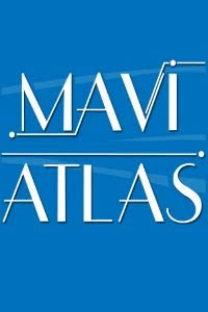Hizmet-içi Eğitim Almış Türk İngilizce Öğretmenlerinin Çalışma Motivasyonlarına Yönelik Bir Araştırma
A Study on Turkish EFL Teachers’ Motivations through in-service Trainings
___
- AJZEN, Icek (1991). “The Theory of Planned Behavior”, Organizational Behavior and Human Decision Processes, 50(2): 179-211.
- ATAY, Derin (2007). “Teacher Research for Professional Development”, ELT Journal, 62(2): 139-147.
- BAYAR, Adem (2014). “The Components of Effective Professional Development Activities in terms of Teachers' Perspective”, Online Submission, 6(2): 319-327.
- BAYRAKCI, Mustafa (2009). “In-Service Teacher Training in Japan and Turkey: A Comparative Analysis of Institutions and Practices”, Australian Journal of Teacher Education, 34(1): 10-22.
- DECHARMS, Richard (1977). “Pawn or Origin? Enhancing Motivation in Disaffected Youth”, Educational Leadership, 34(6): 444-448.
- DECİ, Edward L.,& Richard M. RYAN (1985). Intrinsic Motivation and Self-Determination in Human Behavior. New York: Plenum.
- GAO, Xuesong & Hao XU (2014). “The Dilemma of Being English Language Teachers: Interpreting Teachers’ Motivation to Teach, and Professional Commitment in China’s Hinterland Regions”, Language Teaching Research, 18(2): 152-168.
- GARDNER, Robert C. & Padric C. SMYTHE (1975). “Second Language Acquisition: A Social Psychological Approach”, Research Bulletin No. 332. Retrieved on January 9, 2017 from ERIC Database (ED163754) http://eric.ed.gov/?Id=ED163754
- HAGGER Martin S.; CHATZISARANTIS Nikos L.; CULVERHOUSE Trudi. & Stuart J. H. BIDDLE (2003). “The Processes by which Perceived Autonomy Support in Physical Education Promotes Leisure-Time Physical Activity Intentions and Behavior: A TransContextual Model”, Journal of Educational Psychology, 95: 784–795.
- HAGGER, Martin S. & Nikos L. CHATZISARANTIS (2012). “Transferring Motivation from Educational to Extramural Contexts: A Review of the Trans-Contextual Model”, European Journal of Psychology of Education, 27(2): 195-212.
- HODGES, Charles B. (2004). “Designing to Motivate: Motivational Techniques to Incorporate in E-Learning Experiences”, The Journal of Interactive Online Learning, 2(3): 1-7.
- KAUFFMANN, Douglas F.; SOYLU, Y. M.eryem & Bryan DUKE (2011). “Validation of the Motivation to Teach Scale”, Hacettepe University Journal of Education, 40: 279-290.
- KELLER, John M. (1987). “Development and Use of the ARCS Model of Instructional Design”, Journal of Instructional Development, 10(3): 2-10.
- KHATTAK, Zafar Iqbal.; ABBASI, Gulfraz & Ayaz AHMAD (2011). “Impact Analysis of the In-Service Teacher Training Programmes of the Testing and Evaluation Sub-Committee of the ELTR Project in Pakistan”, Procedia-Social and Behavioral Sciences, 15: 1479-1483.
- LEE, Icy (2010). “Writing Teacher Education and Teacher Learning: Testimonies of Four EFL Teachers”, Journal of Second Language Writing, 19(3): 143-157.
- LOEB, Susanna; DYNARSKI, Susan.; MCFARLAND, Daniel; MORRIS, Pamela;
- REARDON, Sean & Sarah REBER (2017). Descriptive Analysis in Education: A Guide for Researchers.
- NCEE 2017- 4023: National Center for Education Evaluation and Regional Assistance.
- MASLOW, Abraham H. (1943). “A Theory of Human Motivation”, Psychological Review, 50(4): 370.
- O’DWYER, John B. & Hilal Handan ATLI (2015). “A Study of In-Service Teacher Educator Roles, with Implications for a Curriculum for Their Professional Development”, European Journal of Teacher Education, 38(1): 4-20.
- PINTRICH, Paul R. (2000). “An Achievement Goal Theory Perspective on Issues in Motivation Terminology, Theory, and Research”, Contemporary Educational Psychology, 25(1): 92- 104.
- SALOMÄKI, Ulla; RUOKONEN, Inkeri; & Heikki RUISMÄKI (2012). “Educators' Professional and Personal Growth: A Case Study of European Teachers' In-Service Training Courses”, Journal of Teacher Education for Sustainability, 14(1): 20-29.
- UYSAL, Hacer Hande (2012). “Evaluation of an In-Service Training Program for Primary- School Language Teachers in Turkey”, Australian Journal of Teacher Education, 37(7): N7.
- VALLERAND, Robert J. (1995). “Toward A Hierarchical Model of Intrinsic and Extrinsic Motivation”, A Theory/ Review Paper Presented at the Canadian Psychology Association Annual Conference, Charlottetown. PEI, Canada.
- WIGFIELD, Allan & Jacquelynne S. ECCLES (2000). “Expectancy–Value Theory of Achievement Motivation”, Contemporary Educational Psychology, 25(1): 68-81.
- WLODKOWSKI, Raymond J. (1978). “Motivation and Teaching: A Practical Guide”, Retrieved on January 9, 2017 from ERIC Database (ED159173) https://eric.ed.gov/?Id=ED159173
- YAN, Chunmei. (2008). “Mutual Adaptation: Enhancing Longer-Term Sustainability of Cross- Cultural In-Service Teacher Training Initiatives in China”, System, 36(4): 586- 606.
- YAN, Chunmei & Chuanjun HE (2015). “Short Courses Shouldn’t Be Short-Lived! Enhancing Longer-Term Impact of Short English as a Foreign Language INSET Initiatives in China”, Professional Development in Education, 41(5): 759-776.
- YILMAZ, Hande (2018). Motivation Levels of In-service English Teachers: From Tradition to Change. (Master Thesis), Balıkesir University Social Sciences Institute, Balıkesir.
- ISSN: 2148-5232
- Yayın Aralığı: 2
- Başlangıç: 2013
- Yayıncı: Gümüşhane Üniversitesi Edebiyat Fakültesi
Ahmet Mithat Efendi'nin Hokkabaz Kitabı
Gül Nihal KUL, Çevirmen: Gül Nihal KUL
Salgurlular’da Naibe Türkan Hatun ve Atabeg Abiş Hatun’un İdaresi
Ahmet Mithat Efendi’nin Hokkabaz Kitabı
Türkiye’nin Sıhhî ve İçtimaî Coğrafyası Raporlarına Göre: Kırklareli
Şerif Can HATİPOĞLU, Muhammet BAHADIR
Fatma OKUR ÇAKICI, Özgür BAYRAKTAR
Osmanlı’dan Cumhuriyet’e Örnek Bir İdareci: Vali İbrahim Ethem Aykut’un Hayatı ve İdari Faaliyetleri
